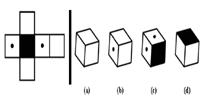|
 |
What are psychometric assessments?
The following article is the second of a series of 3 about psychometric
testing. |
|
|
Unfortunately, when most people think of assessments for jobs they
think of these as exams which you either pass and get the
job or fail
and do not. The good news is that psychometric assessments should not
really be thought of in this way. Such assessments are concerned with
describing and understanding a person's abilities. They are not used
solely to make selection decisions but are used in conjunction with
other methods such as CVs, application forms and interviews, to help
build up a more detailed picture of a candidate.
There are two main areas of psychometric assessments:
1) Those which assess typical performance such as personality, values
and motivational questionnaires. These are not usually timed, and there
are no right or wrong answers. These kinds of psychometric assessment
are used to find out more about whether your personality will fit with
the team and the company and whether the role will interest you.
Practice these tests here >>
2) Those which assess maximum performance. These are tests which look
at your numerical, verbal and general reasoning abilities or specific
job related skills. These are perhaps the kind of assessments which
those applying for a
job may be most concerned about as they do have
right and wrong answers and are usually timed.
Practice the aptitude tests employers use >>
|
|
Examples
Personality questionnaires: are varied
but often present you with a statement and then ask you whether you
agree, disagree or do not know, alternatively questions may be
presented in the following way:
"I prefer friends that are":
a) Quiet b) ? c) Lively
Answer: there are no correct answers to
these sort of question, just choose which one you feel is most
applicable to you. It is important that you do not try to second guess
what the questionnaire is looking for as it is unlikely that you will
be correct and the results will not represent you honestly. Such
discrepancies are unlikely to aid your application.
|
|
Numerical Reasoning
This kind of assessment is varied also, and can ask you to complete
simple mathematical calculations, presented with tables of data, and
being asked to answer a number of questions from the data, see example
below:
"What is the missing number?"

(a) 4 (b) 16 (c) 11 (d) 18 (e) 68
Answer: Here you must look for patterns
within the numbers
3 + 2 = 5 5 + 2 = 7 15 - 3 = 12 12 - 3 = 9 27 - 8 = 19 19 - 8 = 11
Therefore the correct answer is c). Notice that this also works
vertically in this case.
Practice employers' numerical reasoning tests here >>
|
|
Spatial Reasoning
These assessments usually use diagrams or pictures and often ask you to
see a pattern:

"When the figure on the left is folded into a cube, which one of the
four figures will it make?
Answer: the only correct response is
(b). If you are not sure, try making the shape and folding it into a
cube!
Practice employers'
spatial reasoning tests here >>
|
|
Verbal Reasoning
Sometimes these assessments have paragraphs of text and then ask you to
answer whether statements related to the paragraph are true or false,
alternatively questions can look like this:
? is to HEARING as BLIND is to ?
(a) Ear - Eye (b) Deaf - Sight (c) Ear - Sight (d) Deaf - Dark (e)
Music - Light
Answer: the correct response is (b),
Deaf is to HEARING as BLIND is to Sight because this is the only
combination of words which makes a sensible and logical sentence (if a
person is deaf, they have problems with their hearing and if a person
is blind they have problems with their sight).
Practice employers' verbal reasoning tests here >>.
|
|
More examples of this nature can be found in
numerous books. Two examples are:
How to Pass Numerical Reasoning Tests
by Heidi Smith
Passing Psychometric Tests by
Andrea Shavick |
|

|
About the author of this article:
Nicole Fomin is a consultant psychologist at Human Factors
International. She has worked with government and corporate bodies,
designing assessment centres and advising on screening and selection
procedures.
Human Factors International provide psychometric assessments, both
paper and online as well as administrator training, assessment centre
design and a full range of business psychology consultancy services
around the world. |
|
|

